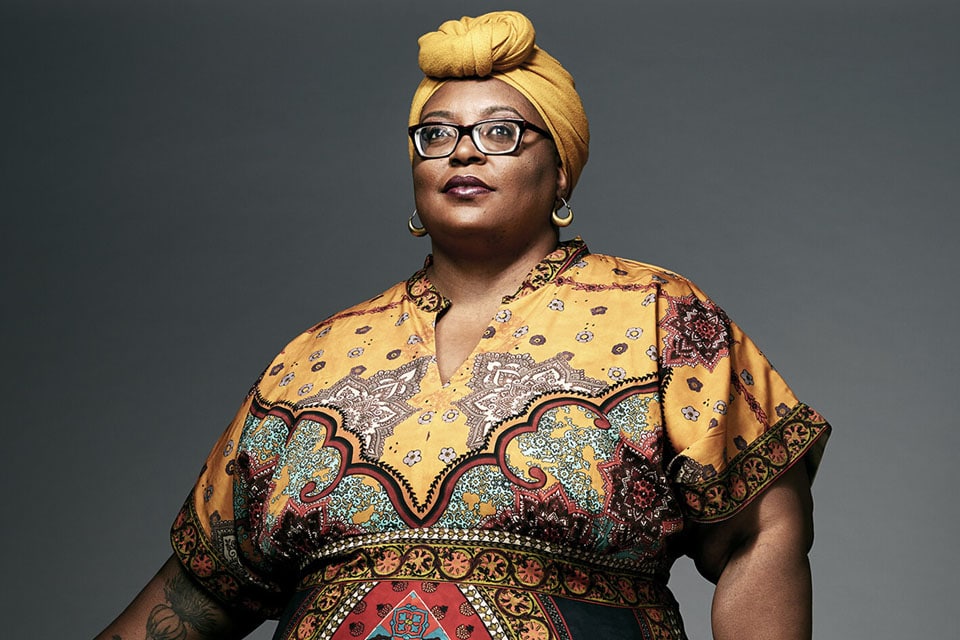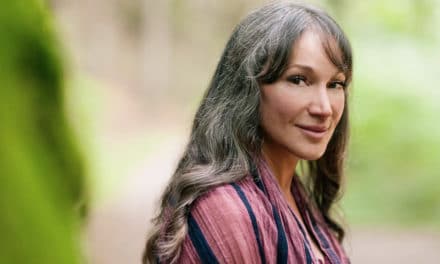Hanifa Nayo Wahington is the founder of the wellness and resilience initiative One Village Healing. We had a chance to speak with Hanifa recently about bringing psychedelic medicine to underserved communities and the vital importance of education, self reflection and spiritual resilience.
Thanks so much for taking the time to speak with us Hanifa. Let’s talk about access for non-affluent and non-white communities in the psychedelic space. That’s been on my mind for years now. I’m curious, how do you see that we can share these beautiful healing tools with communities that are generally underserved by society and medicine and mental health resources? How can we be more equitable with this huge rising movement?
I think that there’s tremendous work around education and undoing harm that can lead to more access, and that is on both sides of the coin. It’s not just for the marginalized communities, it’s also with the influencers and the people who hold the power. We need to understand and undo the harm of the War on Drugs, and that will look different for those that were less impacted due to race and privilege, than those who were brutalized by it.
As I’ve ‘come out’ about my psychedelic use, I’ve seen that there are more people in my community, more people that look like me, who are curious but also fearful about psychedelics. There is deep work to do around reframing the narrative of psychedelics, it’s not all about a bad trip, and it’s not just something white folks do [laughs]. That’s what some people say! To ease those fears and uproot untruths we need to educate folks on the basic science behind psychedelics, what’s happening in the body and the brain, and why therapy is such an important piece of that experience. We know that psychedelic treatment shows tremendous impact when you have therapy coupled with it. Historically with Black Americans, even if you take psychedelics out of the picture, there’s a huge stigma around therapy and that is shifting too!
People in marginalized communities and people of color can benefit the most from any of the psychedelic and plant medicines that Western science is now showing can reduce stress and alleviate trauma. So how can we at a policy level say that some percentage of these services are made available to those most impacted by trauma, racialized trauma and historical oppression? That policy work needs to be done at state and federal levels to have the greatest impact across generations to come.
It’s also not just about including marginalized people in organizations for better optics, it’s about how we can share power. How can we make decisions together? How can we work toward liberation for all? How can we ensure that everyone has a voice that is heard? Often- and I have been there plenty- BIPOC folks will get invited to a seat at the table, but under the table that person is shackled. Many of the tables that I’ve been invited to, I’ve flipped them over or got up when as Nina Simone reminds me “…when love was no longer being served”. I don’t want to be invited to a place where I am just ‘being diversity,’ you know what I mean? You can feel when that is happening. It’s different when everybody at the table says “I’m committed to the work of transformation and change, and I know that that starts with me, and it’s about sharing power.” When we share power, there’s more equity, when there’s more equity, there’s more of a sense of community and belonging.
And fundamentally, it’s so important to do the inner work. Do the plant medicine and work on decolonizing your mind and returning to what is true. That is honestly the biggest work that privileged people can be doing. That, and support, celebrate, and fund the oppressed and underreourced to gather, self-organize, and heal in the ways best for them.
There’s got to be a multifaceted approach to educating and transforming people on all sides of the wellness gap. And a lot comes down to sharing power. Until that happens, there cannot really be lasting and truly transformational change.
When I think about the most traumatized people in our society, race is certainly a major factor, but class too is absolutely massive. So many people are stuck in real scarcity. Chronic scarcity in communities usually leads to chronic trauma, and of course that can be compounded with other forms of oppression. How can we reach those poor folks across the country that are living in constant trauma?
I don’t expect you to have a magic answer [laughs] but I think this is an important question and I would love your insight.
I accept! [laughs] Psychedelics are not the answer, they are a part, they are a tool, and we know they are effective, but there are more fundamental layers.
What people really want and need is community, they want connection. They want to be seen and heard. Plenty of studies out there show what is behind addiction is a lack of connection- people are not feeling seen and heard, they are lost and numbed and will do anything to feel something special, even if it’s an addictive drug or behavior. So I think a way forward is something I have dedicated my life to- how we can create spaces of connection where people can share their story, and learn and practice deep and empathetic listening and witnessing.
We have seen a major decline in church congregation numbers. I think it’s so interesting that as we go forward in society, church is such a historically important community place, and it’s not necessarily that something needs to replace the church, but there’s something that people need there, where they are in community, can share what’s going on, not be judged, and feel safe.
When I created One Village Healing which I launched in 2019, it was to provide a place where brown and black folks could have access to free community mindfulness and wellness practices. It’s all online now because of Covid, but there’s reiki, there’s breathwork, there’s yoga, there’s talk groups, everyday there’s something that people can drop into and the people there look like me.
What’s complicated when you’re talking about racialized trauma is that when you combine that with any other marginalized group like experiencing poverty or being a woman- you can go and seek wellness, whether it’s with psychedelics or otherwise, but then every day we have to return to our neighborhoods and our cities and our country where we face retraumatization over and over again. It’s so important to help people be resilient as they have to continue to move through systems that seek to harm them. People have to learn spiritual resilience skills for their wellness and survival.
That’s where I center my life and my energy. I’ve seen and heard the impacts of having a place where someone can just drop in and rest and connect or just take a breather. Will this erase poverty and the systems that keep it in place, no, but I think it is bringing people’s humanity back to them, both in their own connection to themselves, and also to not fear other people. The last year and a half, people have literally been weaponized. People are scared of each other in ways that are very different than before. I think that once we start to create places that bring the human spirit back to us as people and allow us to practice empathy and feel like we are a part of something with each other, that is essential.
I’m getting goosebumps. You’re working on the soil of the human soul. There are so many changes that need to be made that are specific and targeted and taking economics and politics and race and other things into consideration, and those are important but all of those come from the soil, and the way that we nurture that soil is through sacred connection. Church is, in the broadest sense, an archetypal human need that has been lost, because the version that we inherited doesn’t work for many of us. But we absolutely need spaces for community healing, release and connection. I think the work you are doing is beautiful, powerful and important. We need more of it.
Thank you, I feel so seen Wesley!
We are very grateful to Hanifa for taking the time to speak with us. Check out Hanifa’s website here, and check out One Village Healing here.
Full disclosure statement: The author is employed at Fireside Project where Hanifa is a co-founder. This interview took place and was transcribed before that employment began.










